In the summer of 1977 I stopped consuming animals. This is the story of how I made the connection to the food on my plate and why I became vegan.

Growing up in a meat-centric world
Like most kids in the 1960s, I grew up eating animals. Twice a month, I’d go grocery shopping with my mom, and we’d follow her usual route through the store - ending at the meat counter.
Being the consummate home-cook, Mom was extremely picky about the meat she would buy. Everything had to be fresh and hand selected, in fact, she chose the grocery store where we shopped entirely because of their meat counter. She was on a first-name basis with the butcher, Sal, who took enormous pride in his craft - selecting the choicest roasts, steaks, pork, and poultry and packaging everything to my mother's precise specifications.
I remember staring eye-level into the refrigerated glass case lined with all the various cuts of meat. Each row was neatly arranged with dividers of parsley and perfectly illuminated to enhance the bright red hue of the contents on display. It seemed surreal to me that what I was seeing had been living, breathing, animals only days earlier. I would look at Sal's white apron stained with red-tinged fluid and imagine the brutality of his job. Behind his counter was a huge butcher block table where he would cut the roast to grind for our hamburger meat.
For a few fleeting moments I couldn't stop my mind from considering the violence represented by the butcher shop. But the reality of the source of my dinner was too much to bear. I 'loved' animals but I also loved my mom's amazing beef stew and fried chicken. To give up eating meat meant I would be giving up so many foods I enjoyed. As quickly as those thoughts entered my head, my attention would be diverted by Sal offering me a slice of bologna to nibble on while my mom continued shopping.
Becoming an advocate
My parents were generous and kind-hearted people who truly cared about the less fortunate and never turned their backs on people or animals in need.
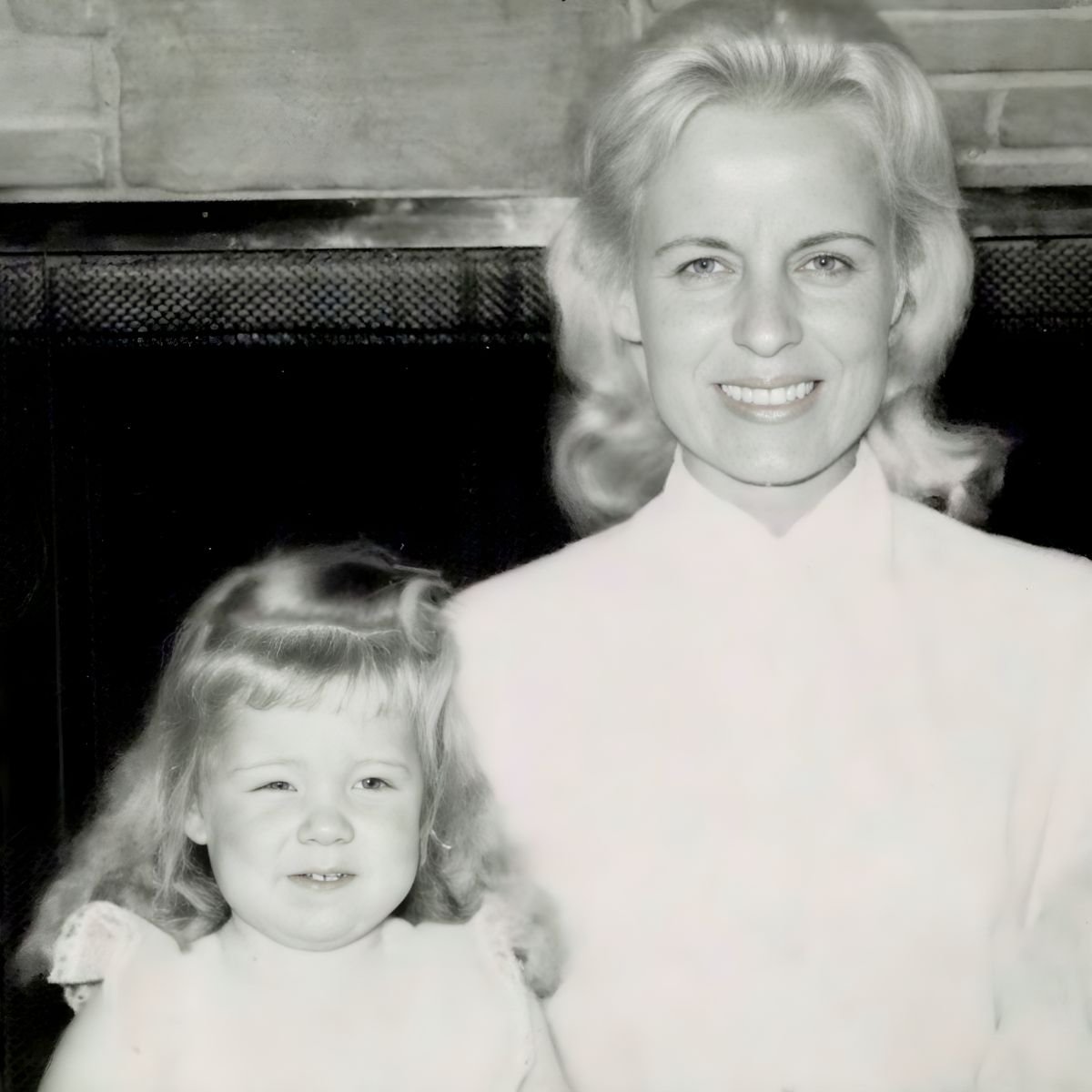
We shared our home with a house full of pets and an occasional injured or orphaned wild bird or bunny. My parents taught me to be kind and gentle with animals and as a result, I felt a strong connection and empathy for them. I remember watching the television series Lassie and becoming inconsolable over a lost puppy in danger. Hunters were the worst villains in any film. I couldn't imagine why anyone would choose to kill an innocent creature. To this day, I cannot bring myself to watch Disney's Bambi and I still sob during the scene in Dumbo when his mother is taken from him. But as much as I loved animals, when it came to eating meat, I managed to disconnect from the horror represented on my dinner plate.
Both my parents believed in volunteerism. My dad enjoyed an active role in local and national political campaigns. Mom loved to advocate for organizations focused on childhood diseases. Several times a year, she walked door-to-door collecting money for her favorite charities. It was fun going with her and listening to her pitch the "cause of the day". I was always impressed by how well she was received by the other neighbor ladies, as they would contribute a dollar or two for her envelope. It was encouraging to see, through her efforts, she was helping raise awareness about issues she cared about.
Being kind to animals
One day, I decided to create my own campaign. I sat down on my bed and cut up several pieces of paper and wrote on each "Please be kind to animals." Wearing a home-made name tag and carrying my mom's clipboard, I knocked on every front door on our cul-de-sac. I handed one of my little notes to each person gracious enough to answer their door, announcing that it was "Be Kind to Animals Week" and to be please be kind to animals. No money was exchanged. Only a few heartfelt words between an 8-year-old kid trying to make a difference and the slightly amused adults who were willing to listen. I liked feeling that I had engaged someone in a conversation about compassion.
I knew in my heart that consuming animals was at odds with 'loving' them.
Becoming assertive
As time went on, I found myself struggling to reconcile my attitude toward animals and my dietary tastes.
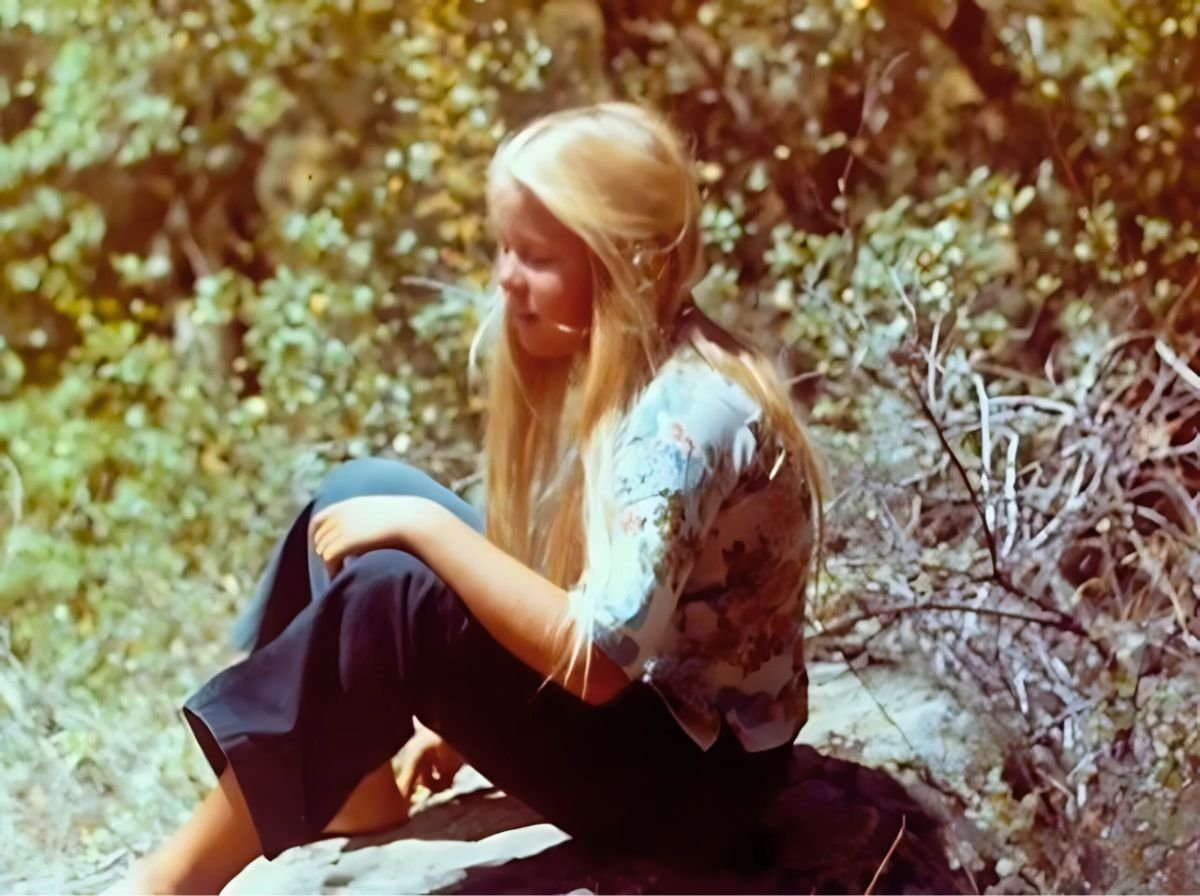
I knew in my heart that consuming animals was at odds with 'loving' them, but I was just so accustomed to eating meat and having a mother who was a fantastic cook didn't make it any easier.
At the age of 10, I announced to my parents that I wanted to become a vegetarian. While my parents were sympathetic to my reasons, they were less than enthusiastic. When I pressed them further, saying I really wanted to stop eating meat, my mom - worried that I couldn't possibly thrive without it - asked our neighbor, a physician, to talk me out of it. I remember sitting with him in our living room as he thoughtfully explained all the reasons why, at my age, it was not a good idea to stop eating animal protein. In hindsight, I know he meant well by trying to support my parent's concerns, and - no fault of his own - there just wasn't a lot of data about plant-based diets at that time.
Meeting a role model
A year or two later, my parents became friends with a professor of agricultural science from India, who just happened to be a lifelong vegetarian. I was so fascinated to meet someone who shared my attitude toward animals and proved that a human could not only thrive, but be extremely healthy without consuming animal products. I made a vow to myself that as soon as I was an adult, I would become a vegetarian. 50 years later, I reconnected with Dr. Prem Bhatnagar, thanking him for helping to influence my decision to stop consuming animals. The last few years preceding his passing, we shared many meaningful conversations about veganism and compassion, which I will always cherish.
Becoming a vegetarian
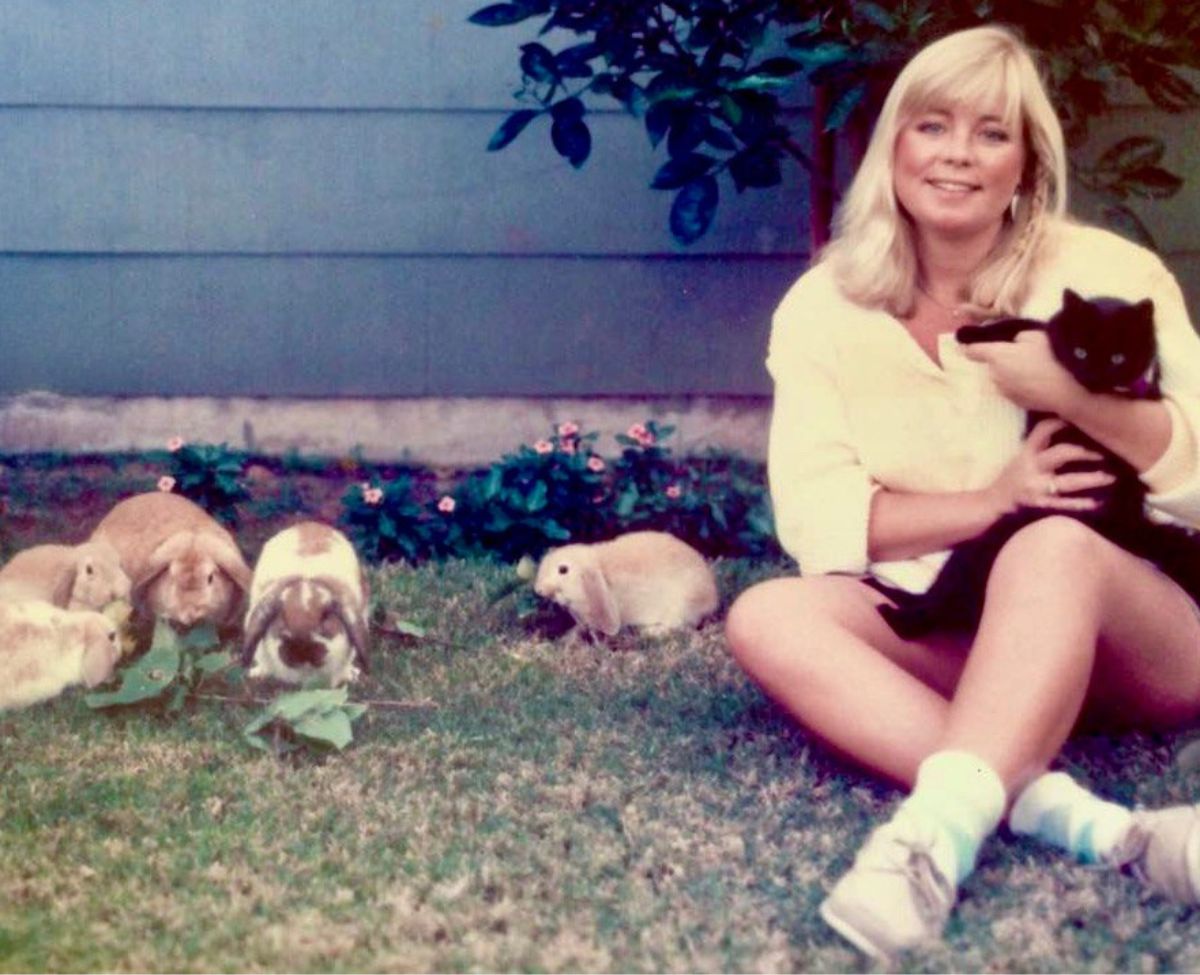
Throughout my teenage years, I tried to cut back on eating meat, replacing it with cottage cheese and yogurt. Due to my own ignorance and a lack of information about the realities of the dairy industry (PETA and the internet were many years away), milk products seemed like an okay alternative. However, sometimes I would cave and eat meat on "special" occasions.
Making the connection
One evening in the summer 1977, my parents were entertaining a guest from Europe. My mom had gone to great lengths to prepare an elaborate steak dinner for us. We had all been enjoying our meal when, just as I was biting into my second or third piece of meat, I experienced an epiphany.
Quite unexpectedly, I made an abrupt, visceral, gut-wrenching connection to what I was eating. Within an instant, I developed a spontaneous and permanent aversion to meat. The piece of steak on my fork, which only moments before was something I found delicious and enjoyable, suddenly became exactly what it was. A chunk of flesh and tissue from the dead body of a recently living sentient being.
It was as if I had been chewing on a piece of myself. I discretely spit it into my napkin, set my fork on my plate and excused myself from the dinner table. I never ate meat again.
Changing perspectives
Perhaps due in part to my revelation, my entire family began to experience a philosophical shift in their own attitudes about food. My brother who loved hamburgers more than Popeye's pal Wimpy, decided to kick the meat habit. So did some of his closest friends.
With my parents help, my brother and a couple of his buddies leased two former fast-food burger joints. They turned them into San Diego's very first drive-thru natural food restaurants.
Our family kitchen became their R&D test kitchen. Everyone wanted to be in on the taste-testing sessions while Mom worked her culinary magic. She created an amazing menu of sandwiches, soups, desserts and smoothies, using all natural, organic, and healthy ingredients. The restaurants - affectionately named "Mama Love's" - quickly became a daily habit for hundreds of area residents and workers.
Way ahead of its time - and unfortunately, underfunded - the restaurants didn't survive the failing economy toward the end of the 1970's. But the recipes live on, and I still enjoy preparing many of the Mama Love's favorites.
Becoming an activist
Saving the San Clemente Island goats
By the mid 1980's, I found myself deeply entrenched in the animal rights movement. One evening while watching television, I saw a breaking news story. The Department of Defense had issued an order to exterminate thousands of feral goats living on a U.S. Navy occupied island located off the San Diego coastline.
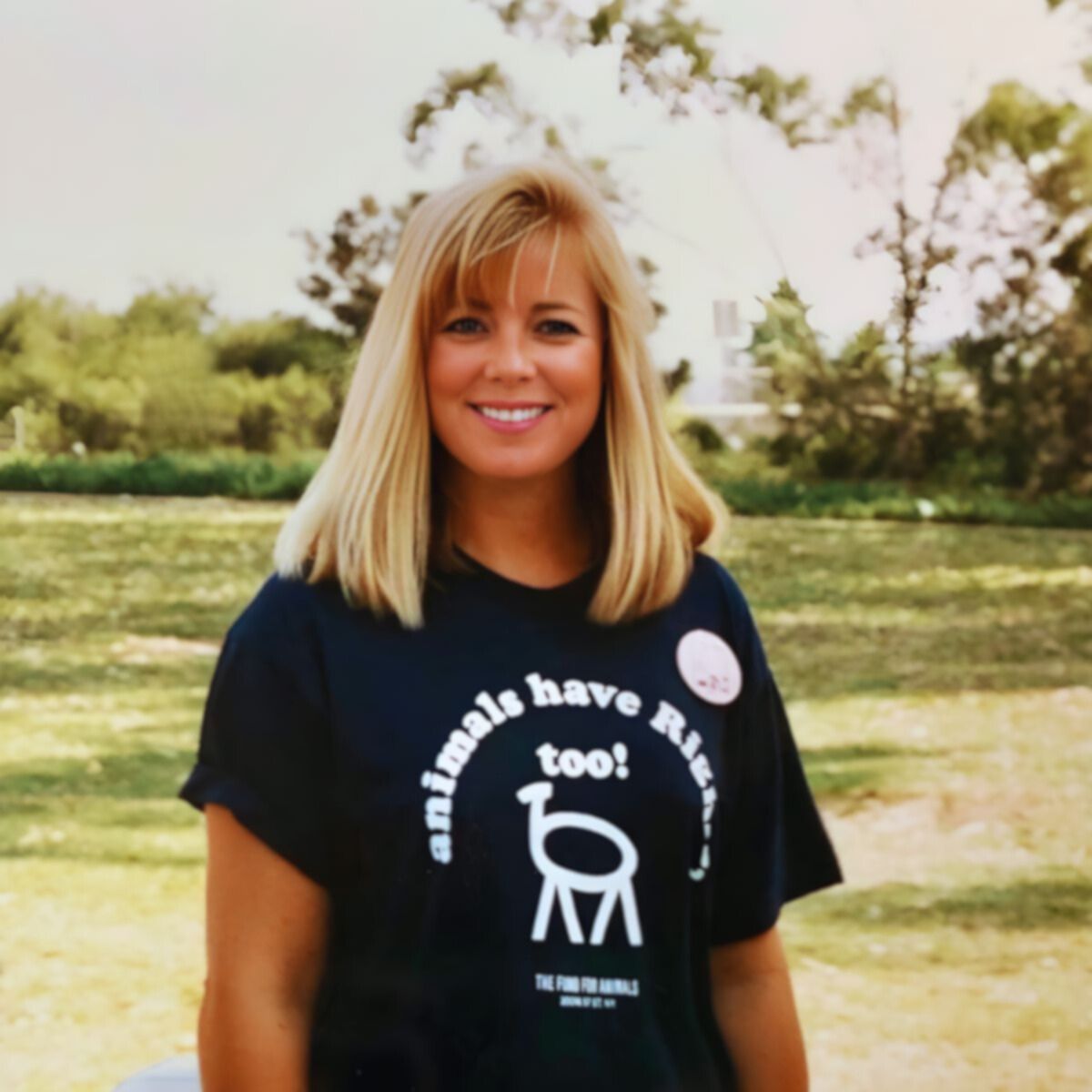
Instead of choosing a viable, humane alternative to relocate the goats unharmed, the government decision makers were determined to shoot the goats by hunters in helicopters. I was horrified and outraged. Moments later, I was on the phone speaking with Cleveland Amory, the renowned author and animal rights champion. As President and founder of the Fund for Animals, Cleveland had recently accomplished a major victory for animals - the successful rescue and relocation of hundreds of wild burros from the Grand Canyon.
I had no idea what I could do to help, but I felt compelled to do something. In his low, gruff, Bostonian voice, Cleveland told me "Over my dead body is anyone going to hurt those poor animals. I've got a plan. In the meantime, I need you to find a safe place where we can house several hundred wild goats". Without considering what that meant, I spontaneously responded "I can do that".
Over the next two weeks, I visited every animal sanctuary in Southern California, trying to find a suitable location. Unfortunately, the nearest one was 120 miles from me.
Finding a home for wild goats
I soon realized that Cleveland was looking to me to handle all of the logistics in caring for and adopting out the goats once they arrived on the mainland. The idea of a 250 mile daily commute, on top of my full-time job, seemed overwhelming and frankly, not possible. Thankfully, I received a tip about an elderly woman who owned several acres located about 45 minutes from my home. I immediately called the woman, who was receptive to meet me. Upon my arrival, I was greeted by a pack of barking dogs, several squawking chickens and their grey-haired disheveled caregiver.
To say Miss Nelson was eccentric is being delicate. As the former owner of the most exclusive private preschool in San Diego, she discovered she much preferred the company of animals to that of toddlers and their parents. So she sold her school and purchased the rural property to create a no-kill dog and cat shelter. I asked if she would consider allowing us to house several hundred wild goats on her property. Without hesitation she responded "I think it would be lovely".
Becoming a rescuer
For the next several months, I spent all of my time, outside of my 9-5 job in town, wrangling wild goats. For a city girl with zero prior experience handling or caring for goats, the learning curve was immense. Suddenly I was faced with understanding feral goat biology and behavior. The education was fast and furious. One of the first things I learned was goats are the most athletic and fleet-footed creatures on the planet. On top of that, my wild island goats had spent generations isolated on an island in the Pacific Ocean. They had never been handled, let alone exposed to the many diseases common to livestock.
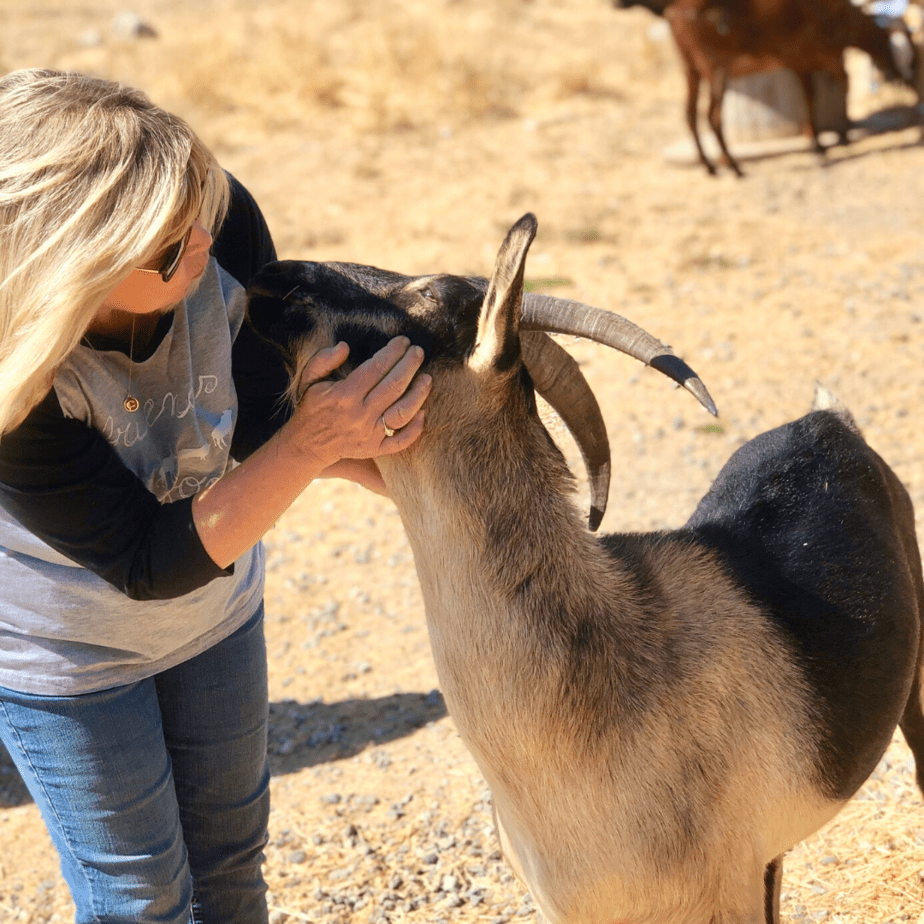
Within days of arriving on the mainland, I was dealing with four hundred very stressed-out (and some quite ill) animals. I was often up to my knees in mud and goat dung, catching leaping goats in mid-air. I assisted our veterinarian vaccinate, neuter and medicate the herd. On weekends, I coordinated adoption clinics and screened applicants. I learned to discern between compassionate qualified potential adopters versus those who were looking for cheap fresh meat for their barbecues.
Witnessing the compassion of others
Caring for the San Clemente Island goats was physically and emotionally exhausting work, but it opened my eyes to the commitment and effort compassionate people are willing to give to protect animals. People like Cleveland Amory, and my dear friends Chuck and Cindy Traisi who walked away from their careers and put their lives on hold to help out.
In the end, we successfully placed hundreds of goats in good, caring adopted homes. The benevolent Miss Nelson decided to retire from running her dog and cat shelter and gifted her property to The Fund for Animals.
During the following 25 years, through the skilled hands and dedication of the Traisis and their team, The Fund for Animals Wildlife Center grew to become the premier wildlife rehab facility in Southern California. Thousands of injured or orphaned animals have been given a second chance at life. Coyotes, bobcats, rabbits, raccoons, opossums, raptors, skunks, songbirds, burros, goats, leopards, lions, tigers, bears . . . even a pygmy hippopotamus. I am very proud to have been a founder of this vitally important facility in San Diego County,
Growing a compassionate family
In the late 80's, I fell in love with the man who would become my husband. Like me, he too had grown up eating meat. When we first met, he teased me about my vegetarianism. As he got to know me, he understood why I chose not to consume animals. He loved animals and felt conflicted from both an ecological and compassionate perspective about eating them.
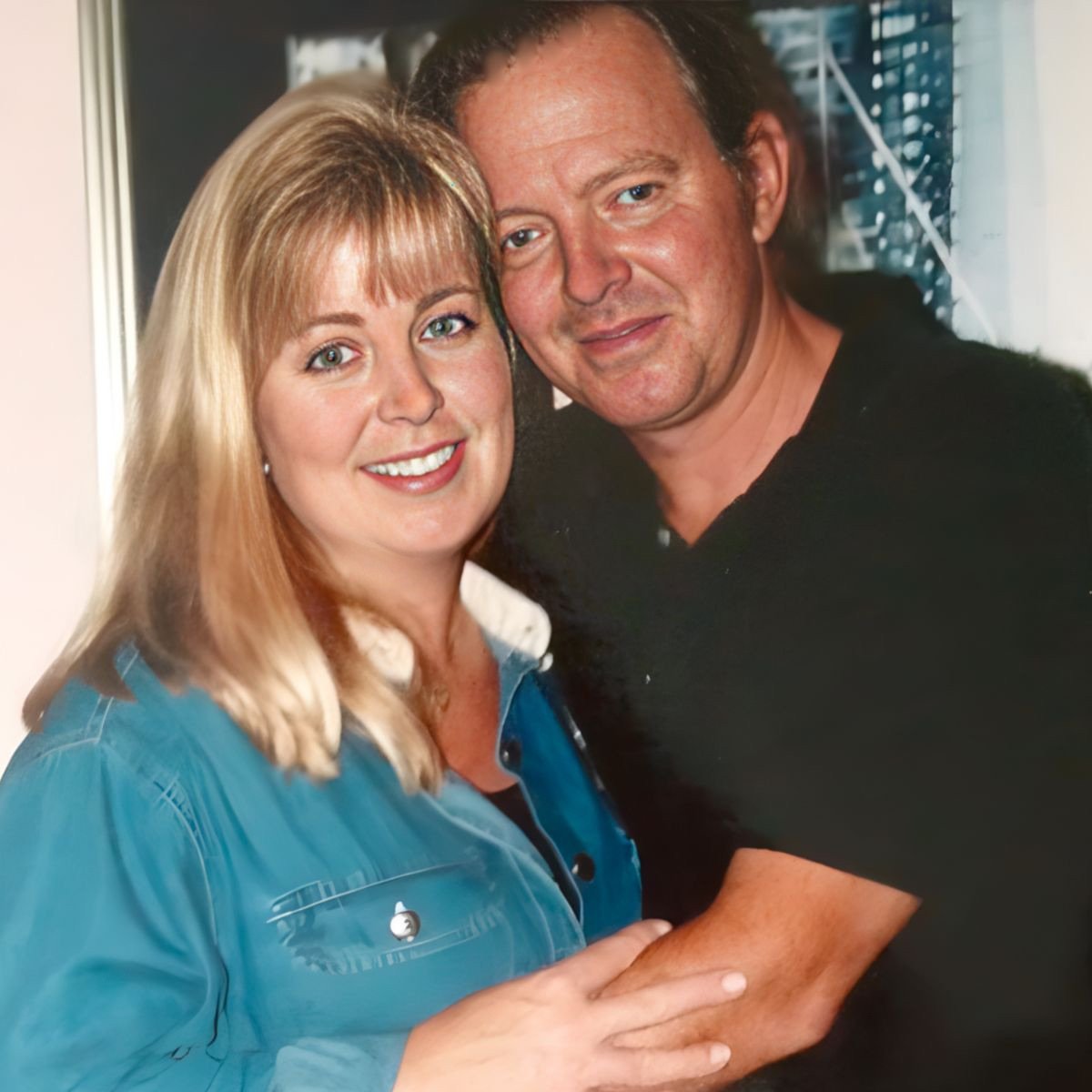
Soon after, he jumped on board the veggie train and hasn't looked back. I knew ours was a perfect match, when he agreed to spend our honeymoon in Washington DC with tens of thousands of other animal advocates from around the world during the very first "March for Animals".
Raising vegetarian children
When we started our family, we decided to raise our children as vegetarians. Our pediatrician supported our choice but discouraged us from eliminating dairy and eggs from their diets. In the early 1990's, veganism was still considered quite radical by a lot of health care providers. For the first several years of their lives, our kids diets consisted of plant-based ingredients with an occasional egg or milk product added.
There were definitely challenges for them, particularly during lunchtime in elementary school. Sometimes kids would make unkind remarks or try to taunt them for not having meat in their lunches. A few of their classmate’s well-intentioned parents tried to offer our kids chicken nuggets or fish sticks. It still amazes me when people assume those are somehow vegetarian.

When other parents found out our kids were vegetarians they were often surprised by how healthy and strong they were. Our son was in the top 90th percentile for his age in height. Our daughter was very active in sports and rock climbing and both of them excelled academically. Not only had living without meat not stunted our kids physical or mental growth, they also developed compassion for others.
When our daughter decided at the age of 12 to become vegan, we readily supported her choice. Together, we researched the wonderful variety of vegan nutritional sources. We began stocking the cupboards with raw nuts, non-dairy milks and yogurts, flaxseed, and vegan B-12 supplements.
"Looking back, I have come to realize that my entire life has been a continuous campaign to promote compassion toward animals."
Becoming vegan
Following our daughter's lead, my husband and I became vegan. Best decision ever! With so many amazing vegan cheeses, egg substitutes and non-dairy products available, it's fantastic being vegan. We have absolutely the best time preparing beautiful and scrumptious plant-based meals. Frankly, cooking has never been more fun. Entertaining is so easy when you realize how simple, delicious, and nutritious vegan dishes can be.
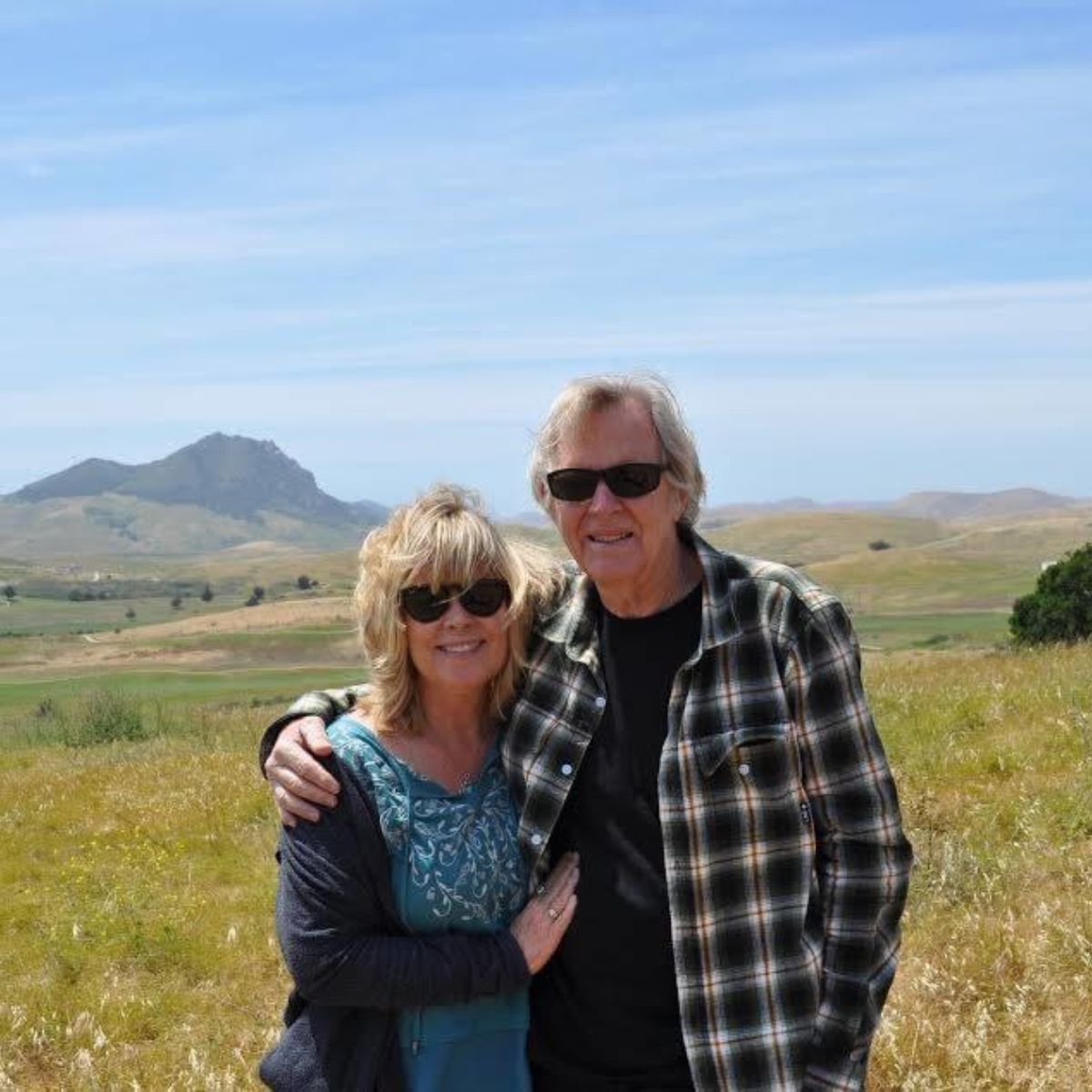
For years our friends have encouraged us to publish a cookbook of our recipes, which I finally accomplished with two books in 2024. In the meantime, I created a recipe blog, The Carrot Underground. Now, whenever someone asks me "What does a vegan eat?", I simply tell them to visit my site or better yet - buy my cookbooks. Gosh - I how I would have loved having them when I started my journey almost 50 years ago! What a game changer.
"Had I known what I know now, I would have chosen to become vegan a lot sooner."
Being vegan
Looking back, I have come to realize my entire life has been a continuous campaign to promote compassion toward animals. By doing so, I have made my life my argument. Each step along the way has opened my eyes (and heart) and made me more aware of the simple steps I can take, as an individual, to help protect animals, the planet, and myself.
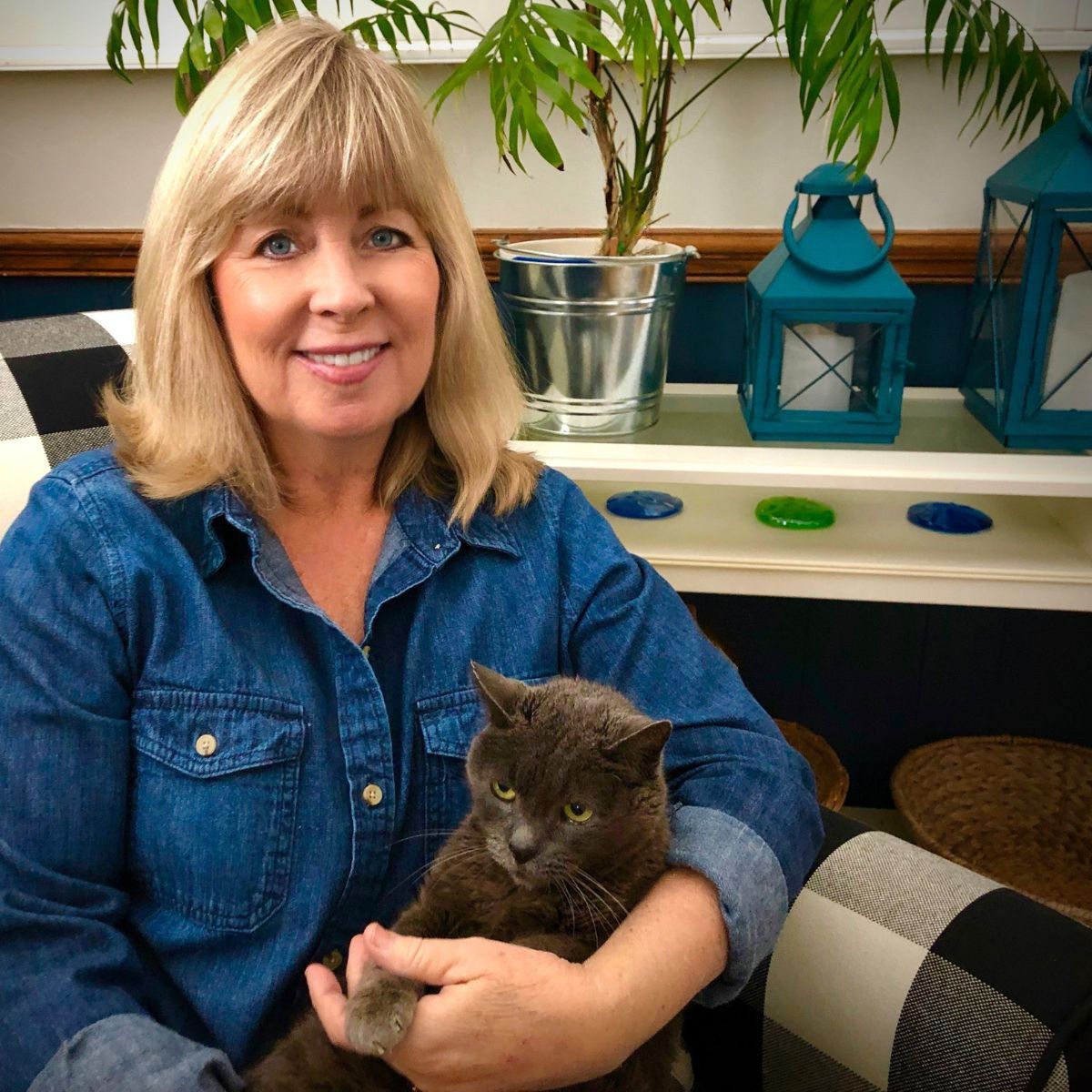
Had I known what I know now, I would have chosen to become vegan a lot sooner. I find it is so rewarding to witness the transformation of many friends and family members as they make the connection to kick the meat & dairy habit and choose to enjoy the goodness of vegan living.
I didn’t always see the truth behind the food on my plate - but once I did, everything changed. If you’ve ever felt conflicted about eating animals or wondered what it really means to live in alignment with your values, I invite you to walk this path with me.
Thank you for being vegan.


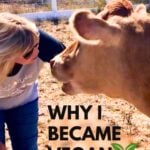




Connie Edwards McGaughy says
Carol, you've no idea how much I appreciate your wonderful words! It sounds like we both had great parents. I can only imagine what that must have been like being raised where you could grow all your own fruits and veggies. It sounds heavenly. John and I have talked about publishing a cookbook and it's something we really want to do. You'll be one of the first to know when it happens! Thank you for all you do to promote compassion and protection for animals - it takes all of us to speak up for those who can't. 💚🥕
Carol Bordin says
Hi Connie and John, I just LOVE your story about your childhood and your parents, your deep compassion for animals and your vision for being an animal advocate and activist! I salute your choices! Amazing, simply Amazing! Thank you for all your wonderful recipes you post on your Facebook page. May I ask, do you have a cookbook, a real book with your recipes to purchase?
I've been reading The Daniel Diet, and I also have Dr. Furman's Book--What Do I Eat? It's a learning curve and one that I am enjoying! When I was a child my mother also took me grocery shopping, she too was like your mother. She always bought the best selection of meats, etc. She even drove one and one-half hour away to get meat from a butcher. My folks also had one of the most amazing vegetable gardens on the planet...grew everything you can imagine including all kinds of fruit trees, and of course they had 20-acres of almonds. Those were the days out there in northern California. My two older sisters still live in Chico, CA. I came up here to Washington back in the late 80's for work with the NPS as a summer park naturalist giving interpretive programs and evening campfire programs. It was a blast, and well, I stayed in WA. I live in Anacortes now and I love it here on the Salish Sea---where Tokitae (SRKW--Orca) is from! WE Are Trying To Bring Her Home From Miami Seaquarium after 50yrs of entertainment trafficking...such a very sad story!
Anyway, I also fell in love with my cats, kittens, dogs, and cockatiels as a young girl, and I too an animal/wildlife/habitat/ecosystem advocate/activist! Thank God for our hearts for wild things and their homes, Amen!
So, thank you for sharing your roots and recipes...Fabulous, Just Fabulous!
Have a great and joyful day....
Carol